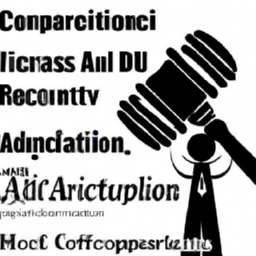Introduction
California is one of the states that provide higher standards when it comes to evaluating the enforceability of arbitration agreements. In recent decisions, California’s Court of Appeal has examined the legal standard for determining unconscionability in these agreements. As Human Resources professionals, it is important to understand the underlying principles behind these recent rulings so that you can properly evaluate the enforceability of your company’s arbitration agreements.
The California Court of Appeal’s Analysis of Unconscionability
The California Court of Appeal’s two decisions in question, Lamps Plus, Inc. v. Varela and McGill v. Citibank, N.A., are based on the standard of unconscionability. Unconscionability is a legal doctrine that has been used to invalidate contracts that are unfair to one of the parties and which are so one-sided that it is considered to be oppressive or unethical.
In Lamps Plus, the Court of Appeal noted that the two primary elements of unconscionability are procedural and substantive unconscionability. Procedural unconscionability refers to the process of forming the agreement and includes an analysis of factors such as the bargaining power of the parties and the circumstances surrounding the agreement. Substantive unconscionability refers to the terms of the agreement itself, including an examination of whether the agreement is overly burdensome or oppressive to one of the parties.
The Court of Appeal’s decision in McGill v. Citibank, N.A. further clarified the standard for determining unconscionability in arbitration agreements. The Court held that the standard for determining unconscionability in arbitration agreements is “whether the clause is so one-sided and oppressive that it shocks the conscience.” The Court also noted that the unconscionability of the clause should be determined by considering the totality of the circumstances, including the bargaining power of the parties, the economic impact of the clause, and the extent of the clause’s one-sidedness.
Implications for Human Resources Professionals
The decisions of the California Court of Appeal provide insight into the standard that the state employs when evaluating the enforceability of arbitration agreements. It is important for Human Resources professionals to understand the standard of unconscionability and to be aware of the factors that the courts will consider when determining whether a particular arbitration agreement is unconscionable.
The decisions of the Court of Appeal can also be used as a guide for Human Resources professionals when evaluating the enforceability of arbitration agreements. For example, when evaluating the enforceability of a particular arbitration agreement, Human Resources professionals should consider the totality of the circumstances, including the bargaining power of the parties, the economic impact of the clause, and the extent of the clause’s one-sidedness.
Conclusion
California is one of the states that provides a higher standard of review when evaluating the enforceability of arbitration agreements. The decisions of the California Court of Appeal provide insight into the state’s standard of unconscionability and can be used as a guide for Human Resources professionals when evaluating the enforceability of particular arbitration agreements. By understanding the principles behind the Court’s decisions, Human Resources professionals can properly evaluate the enforceability of their company’s arbitration agreements.



